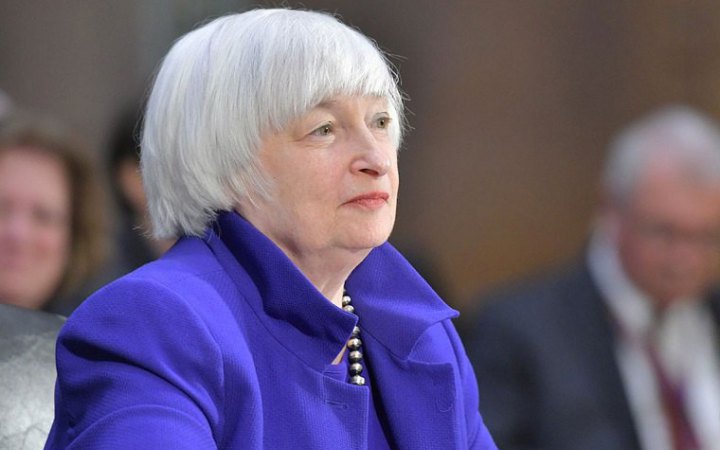Tomorrow, 21 May, US Treasury Secretary Janet Yellen will call on Europe and the United States to unite against Russian aggression and Iranian "support for terrorism". In particular, in her speech on the transatlantic alliance, which will be delivered in Frankfurt am Main, Yellen proposes to find a way to unlock frozen Russian assets to help Ukraine, The Guardian reports.
Yellen believes that US and European support for Ukraine is essential to Kyiv's resistance to a full-scale Russian invasion. It is also "critical to the security of the American and European people".
"If we stand by while dictators violate territorial integrity and flout the rules-based international order, they have no reason to stop at their initial goals. They will continue to move forward," the US Treasury Secretary said.
Yellen noted that the US and Europe must demonstrate that Russia will not be able to survive their determination to defend the rules-based order, which took them decades to build.
Western steps to use frozen Russian assets
- Ukraine has been asking its allies to transfer frozen Russian funds to it, but so far there has been agreement only on the transfer of profits from these funds. This refers to the profits accumulated after 15 February 2024, when the EU countries agreed to use these funds for Ukraine's needs. The €5 billion accumulated before this agreement will not be transferred.
- Foreign Minister Dmytro Kuleba explained that the frozen assets in Germany ($6.5 billion), Austria ($1.8 billion), Ireland ($2 billion) and Poland ($1.13 billion) would be enough to help rebuild more than 3,500 damaged or destroyed educational institutions, including 1,700 schools, more than 1,000 kindergartens and 586 universities.
- Austria has opposed the use of Russian money to arm Kyiv, as German Chancellor Olaf Scholz and European diplomat Josep Borrell have said.
- Belgium, for example, wants to retain a quarter of the profits accumulated from frozen assets and leave it for its tax authorities.
- Recently, PACE adopted a resolution calling for the use of frozen Russian assets to rebuild Ukraine.
- In April, during a meeting of EU foreign ministers in Italy, Vice President of the European Commission Valdis Dombrovskis said that G7 members were considering using frozen Russian assets worth almost $300bn as collateral for loans to Ukraine.
- This month, EU ambassadors decided on the fate of the proceeds of Russia's frozen assets: The funds will be used to support Ukraine's recovery and military defence.
- On 15 May, the Estonian parliament approved a law allowing the use of frozen Russian assets to compensate Ukraine for damages.
- Last week, it was reported that during a meeting of the G7 finance ministers, an agreement would be reached to support the EU plan to provide Ukraine with only the proceeds of frozen Russian assets.








